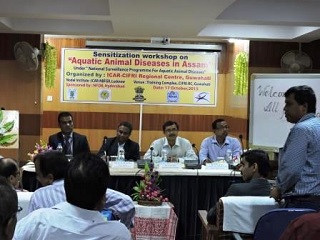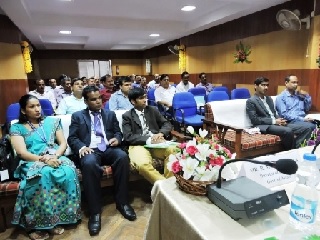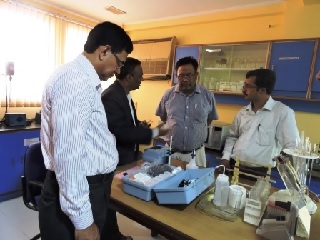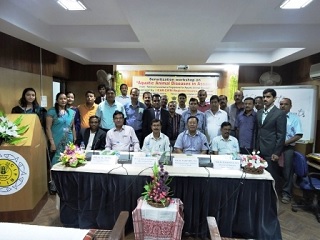Sensitization workshop on “Aquatic Animal Diseases in Assam” at ICAR- CIFRI, Regional Centre, Guwahati
ICAR-Central Inland Fisheries Research Institute, Regional Centre, Guwahati, organized a Sensitization Workshop on “Aquatic Animal Diseases in Assam” at this Centre on 17 October 2015 under the National surveillance programme on aquatic animal diseases (NSPAAD). Dr. B. K. Bhattacharjya, Head of Centre explained the background and objective of the Workshop. Dr. Pronob Das, Scientist; Dr. B. K. Behera, Senior Scientist & PI, NSPAAD; Dr. B. Kalita, Professor, College of Fisheries (AAU), Raha; Dr. D. Debnath and Shri A. K. Yadav, Scientists deliberated on various activities of NSPAAD. Fisheries Officials working in different districts of Assam attended the Workshop. Shri Dhurbajyoti Sarma, FEO conducted the interactive session between the resource persons and fisheries officials. The session was moderated by Dr. B. K. Bhattacharjya. The participants discussed about the ways for jointly contributing for successful completion of the surveillance programme in Assam by involving the fish farmers.
The valedictory session was graced by Shri Hemanta Narzary, IAS, Principal Secretary, Fisheries etc. departments, Govt. of Assam; Shri Ratul Mahanta, ACS, Director of Fisheries, Govt. of Assam; Dr. K. K. Tamuli, Dean (i/c), College of Fisheries (AAU), Raha and Dr. R. C. Barman, Officer-in-Charge, NFDB Regional Centre, Guwahati. The Principal Secretary (Fy) felt that disease surveillance was long over-due and the programme should be further improved to make at par with that implemented by veterinary and animal husbandry departments. The Director of Fisheries assured all support from the department for successful implementation of the programme. The Head, ICAR-CIFRI, RC, Guwahati resolved that to work with the department, college of fisheries and fish farmers of the state for successfully implementing the programme as well as for evolving fish health management protocols in due course. The meeting ended with the vote of thanks by Dr. D. Debnath, Scientist.



